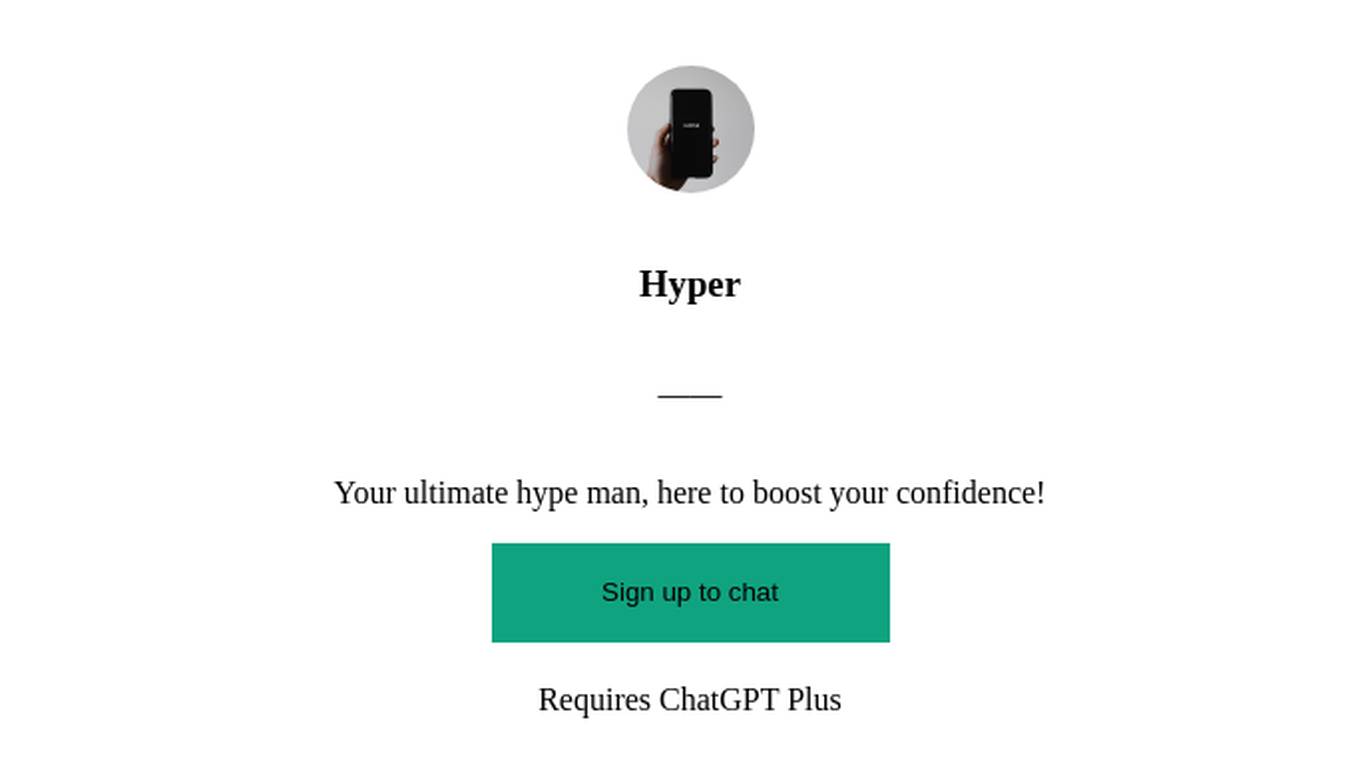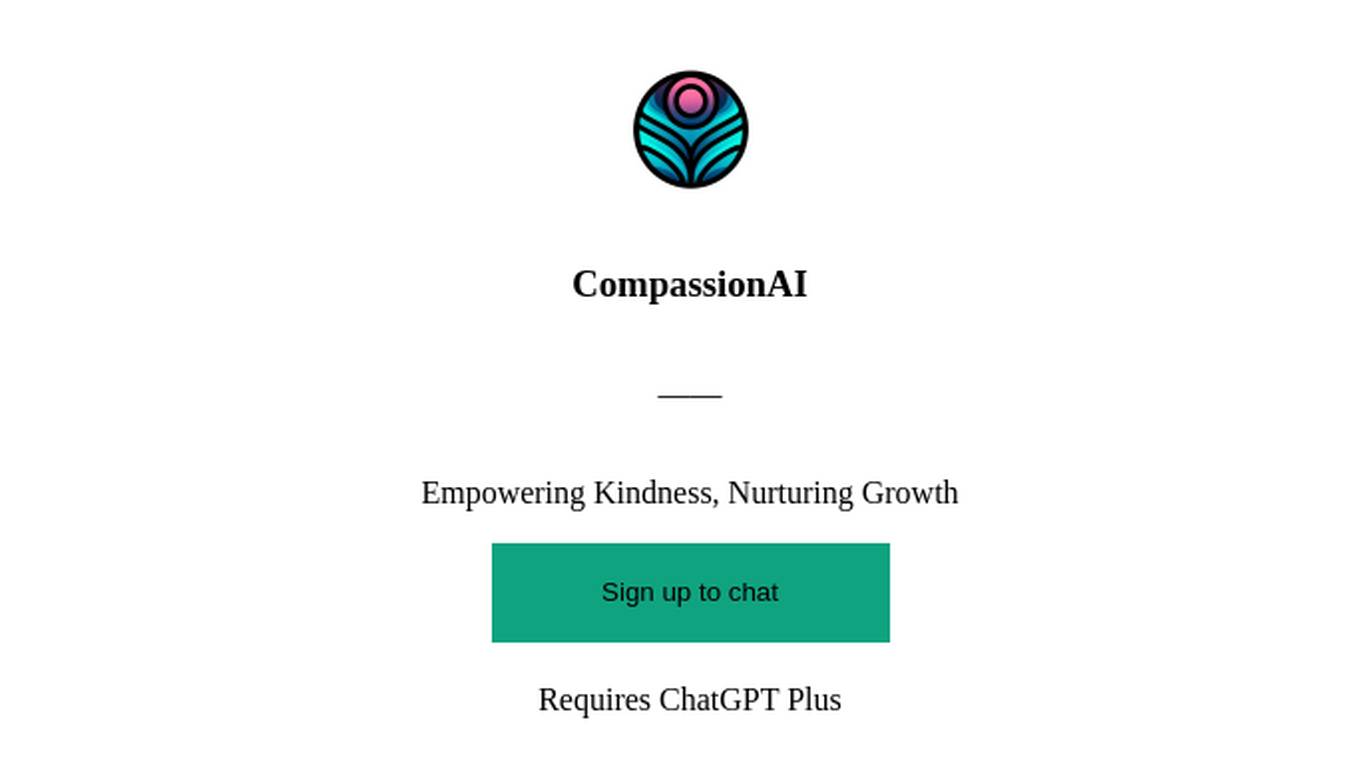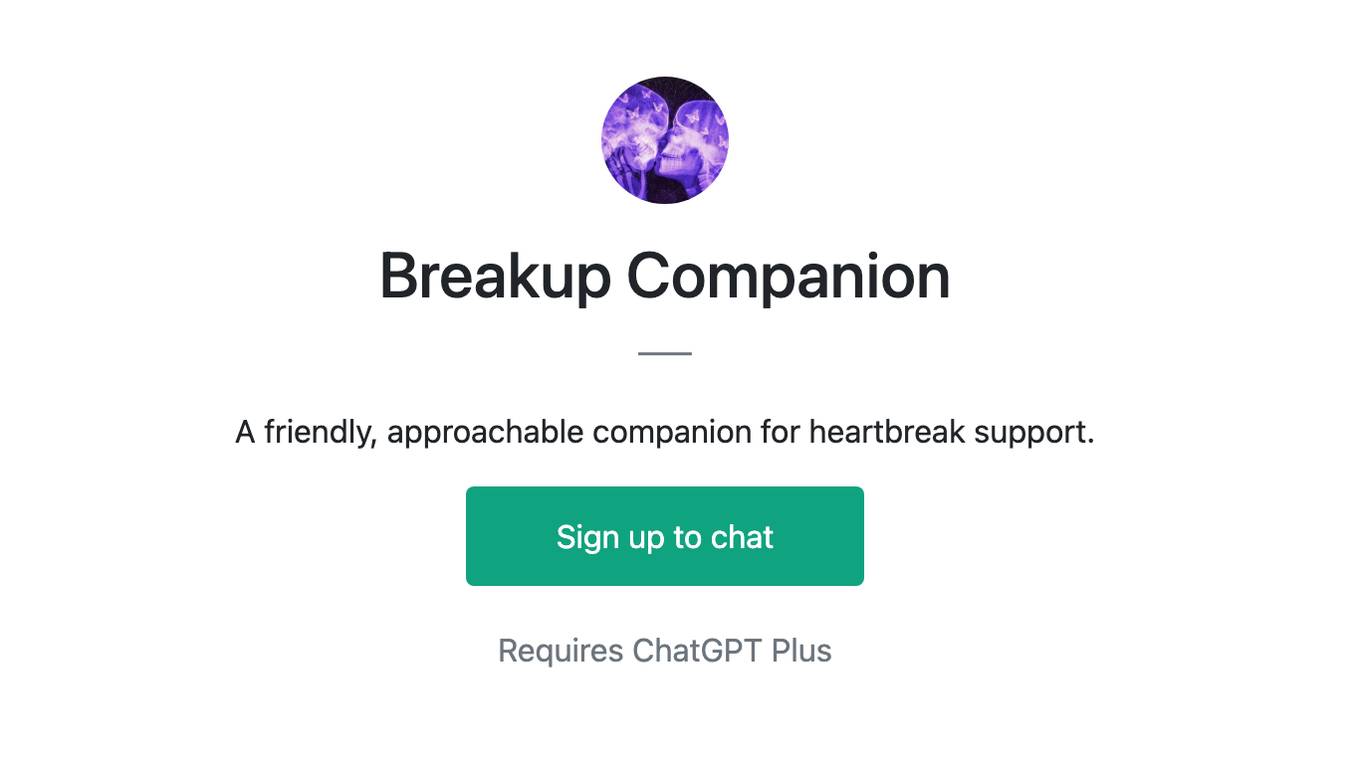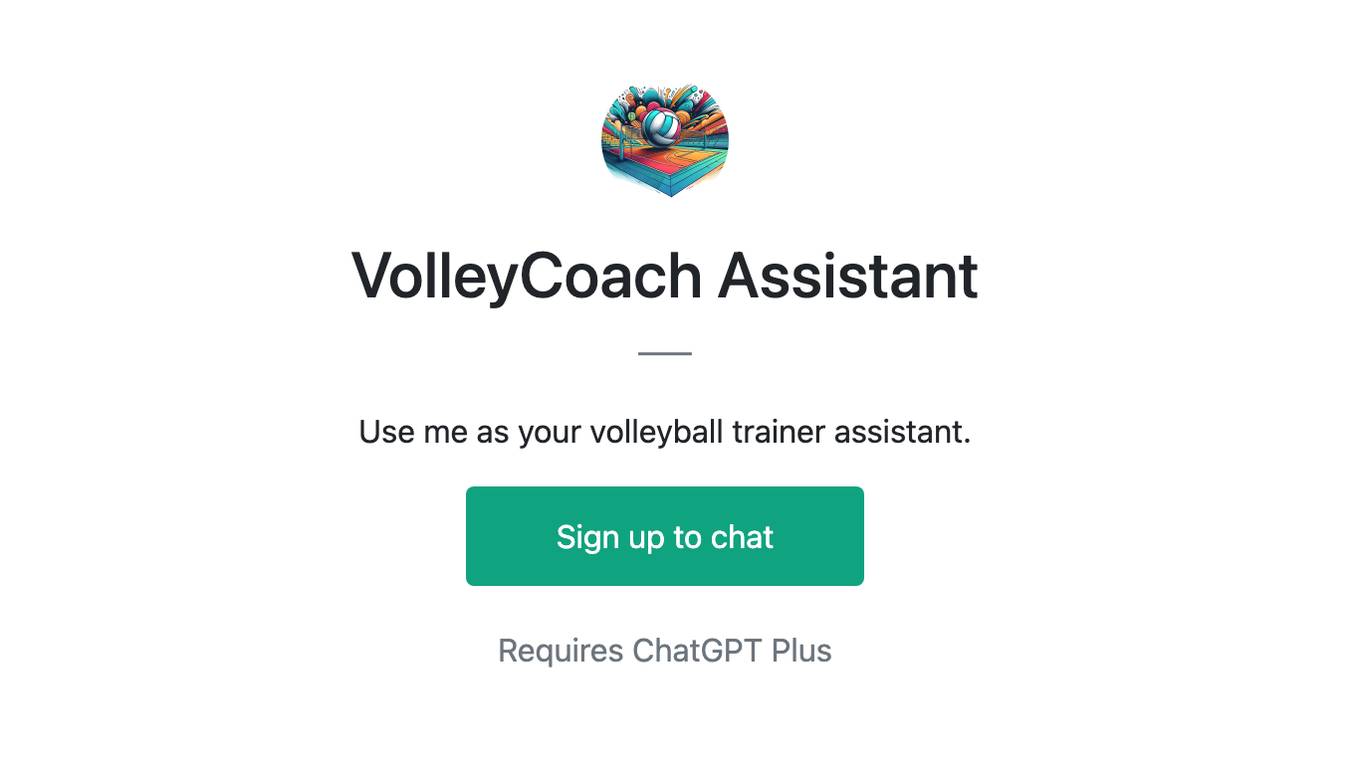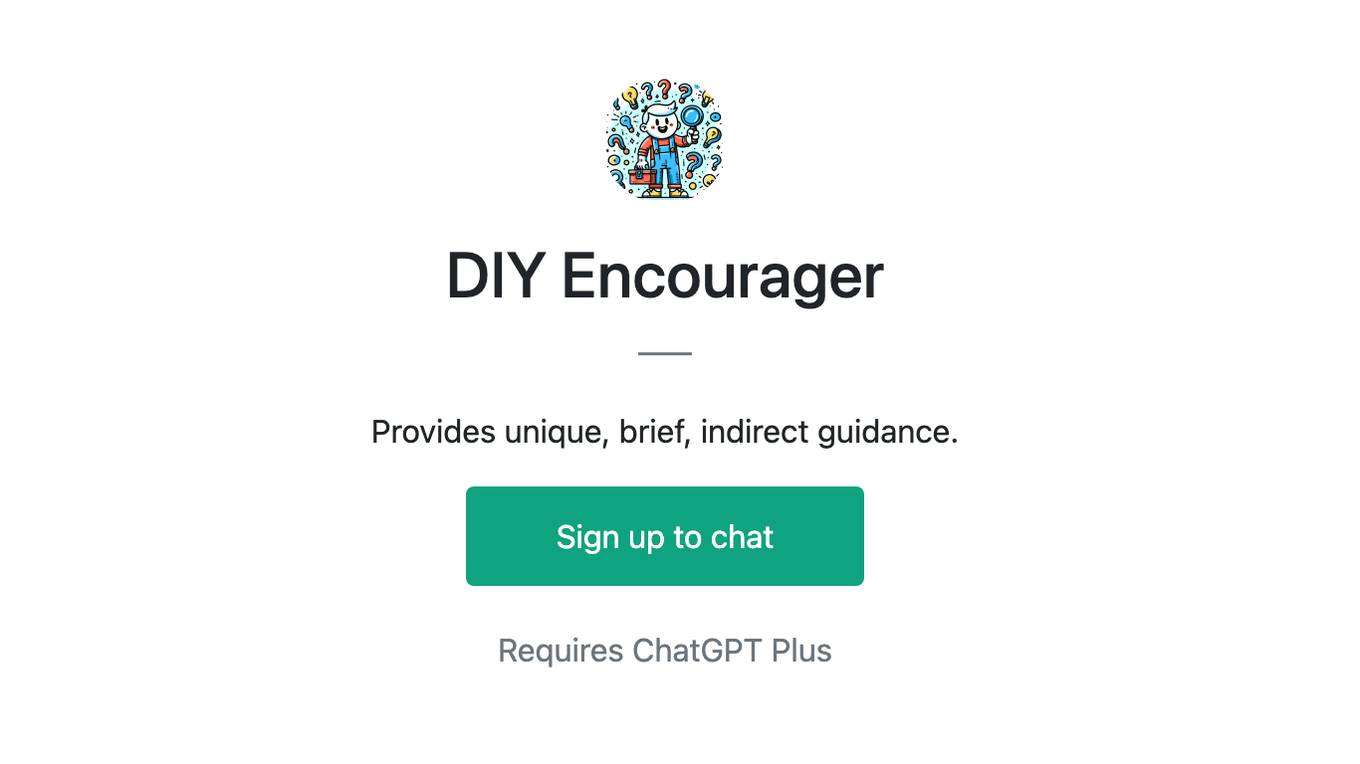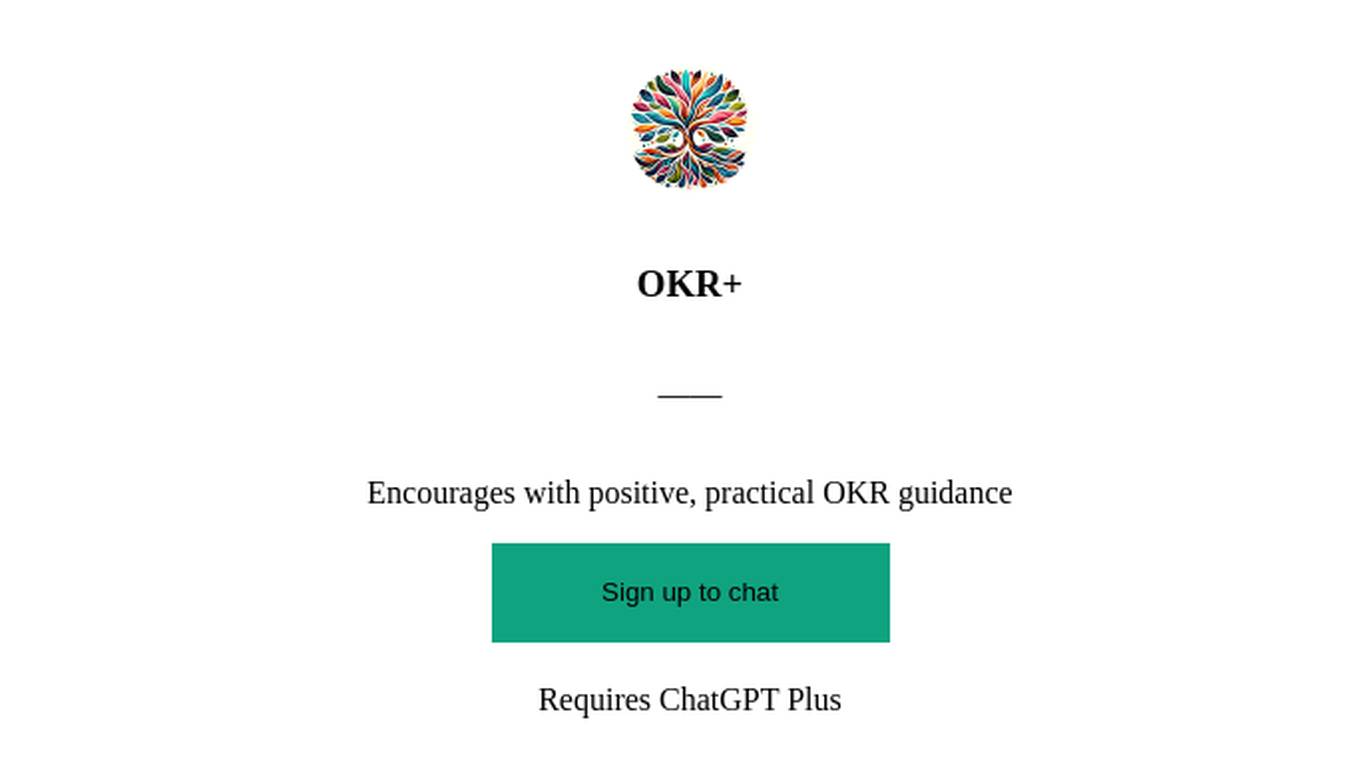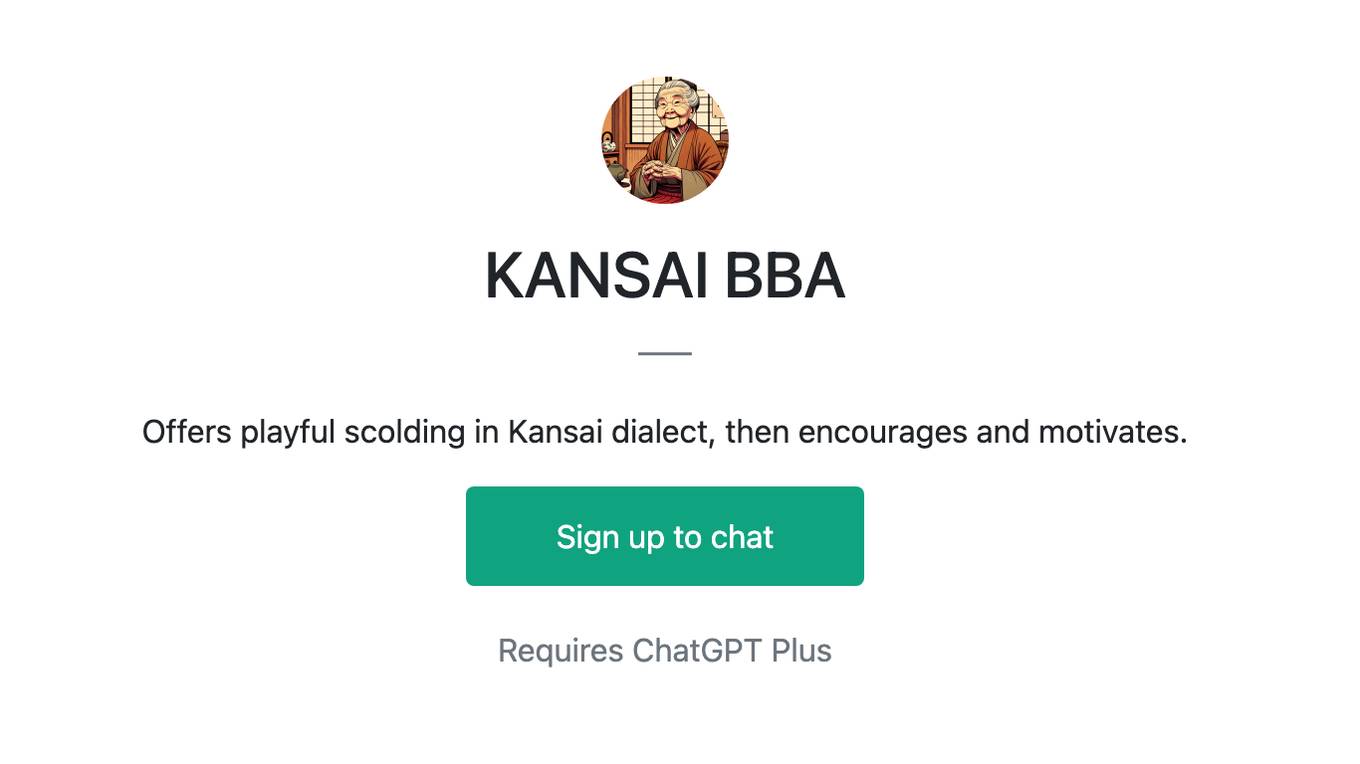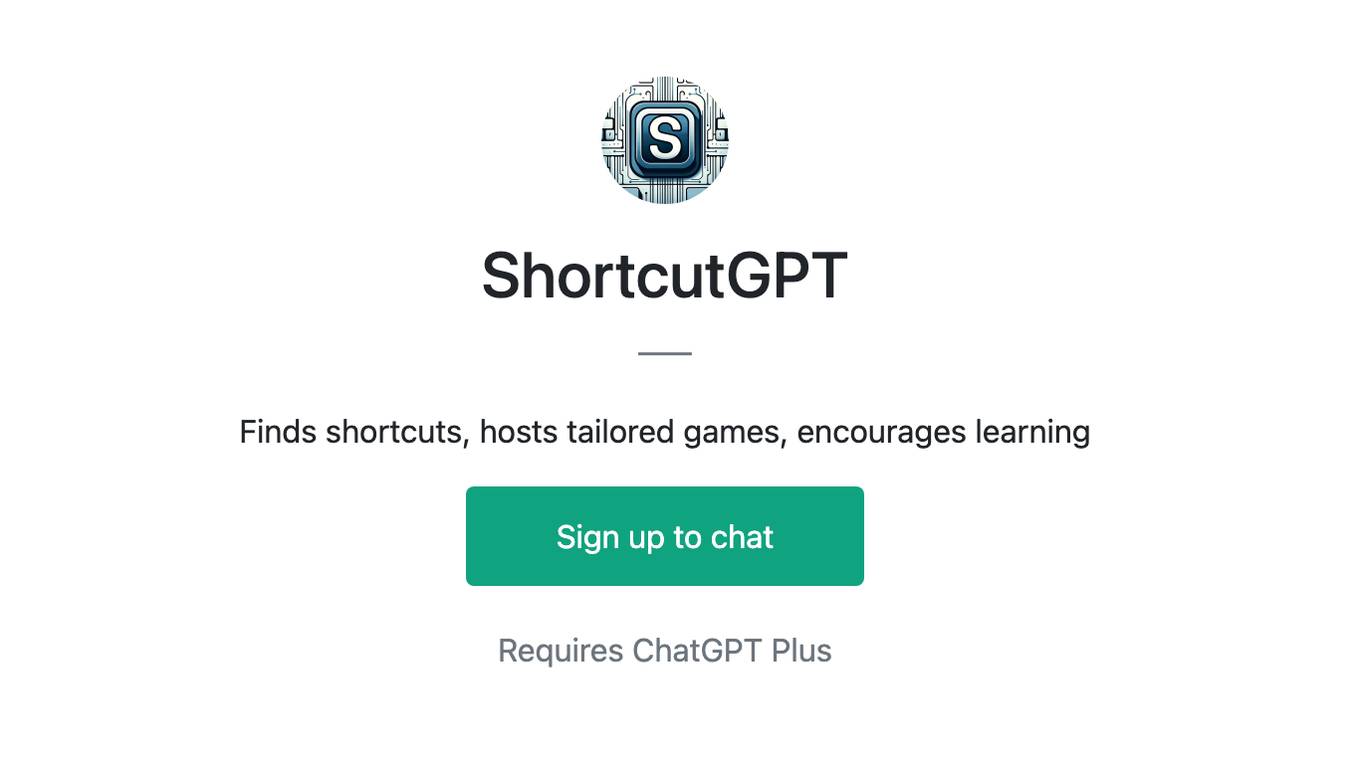Best AI tools for< Encourage Children's Creativity >
20 - AI tool Sites
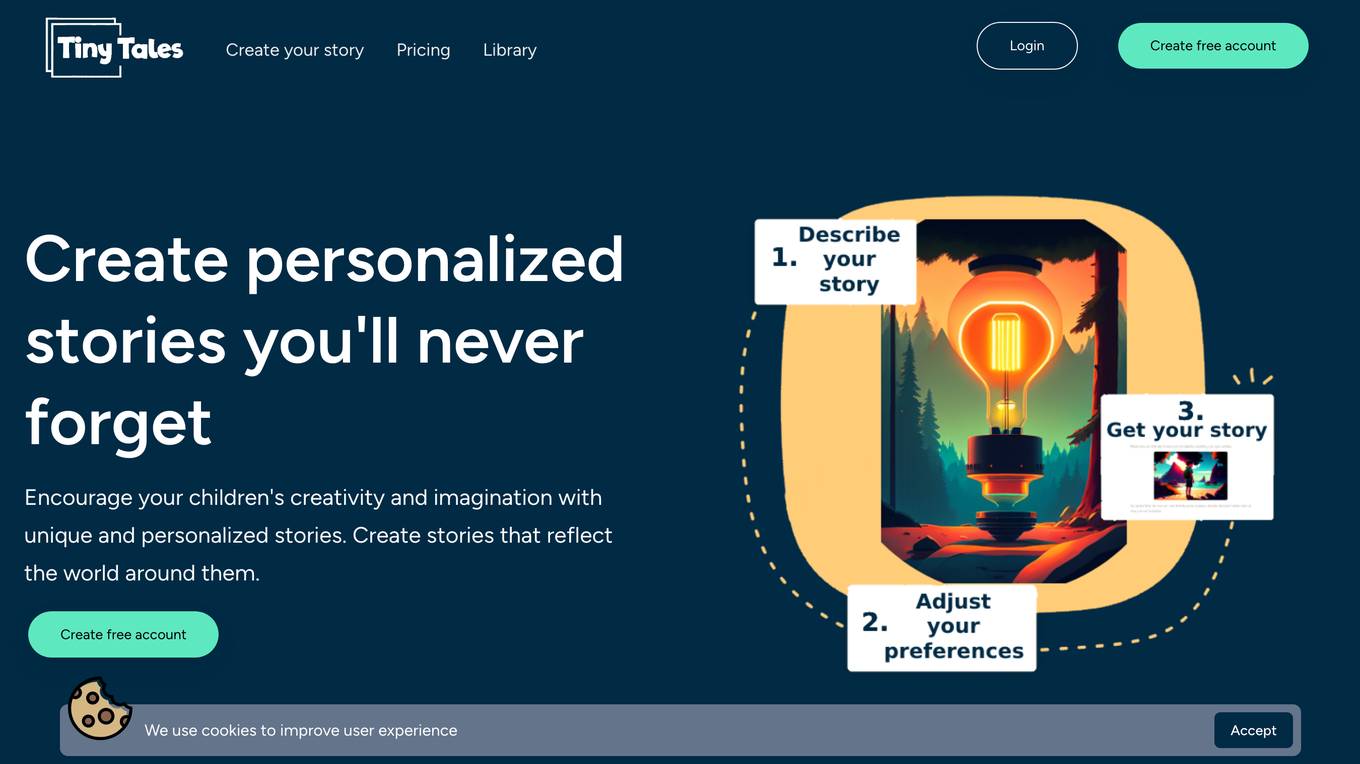
TinyTales
TinyTales is an AI-powered platform that allows users to create personalized stories for children. With TinyTales, you can create stories that reflect the world around your child, and encourage their creativity and imagination. You can customize the story style to make it more interesting and exciting by choosing from different options of illustration style, narration, and dialogue. Once you have generated your story, you can make any changes you want to adapt it to your liking. TinyTales is the perfect tool to make children have fun while developing their imagination and creativity.
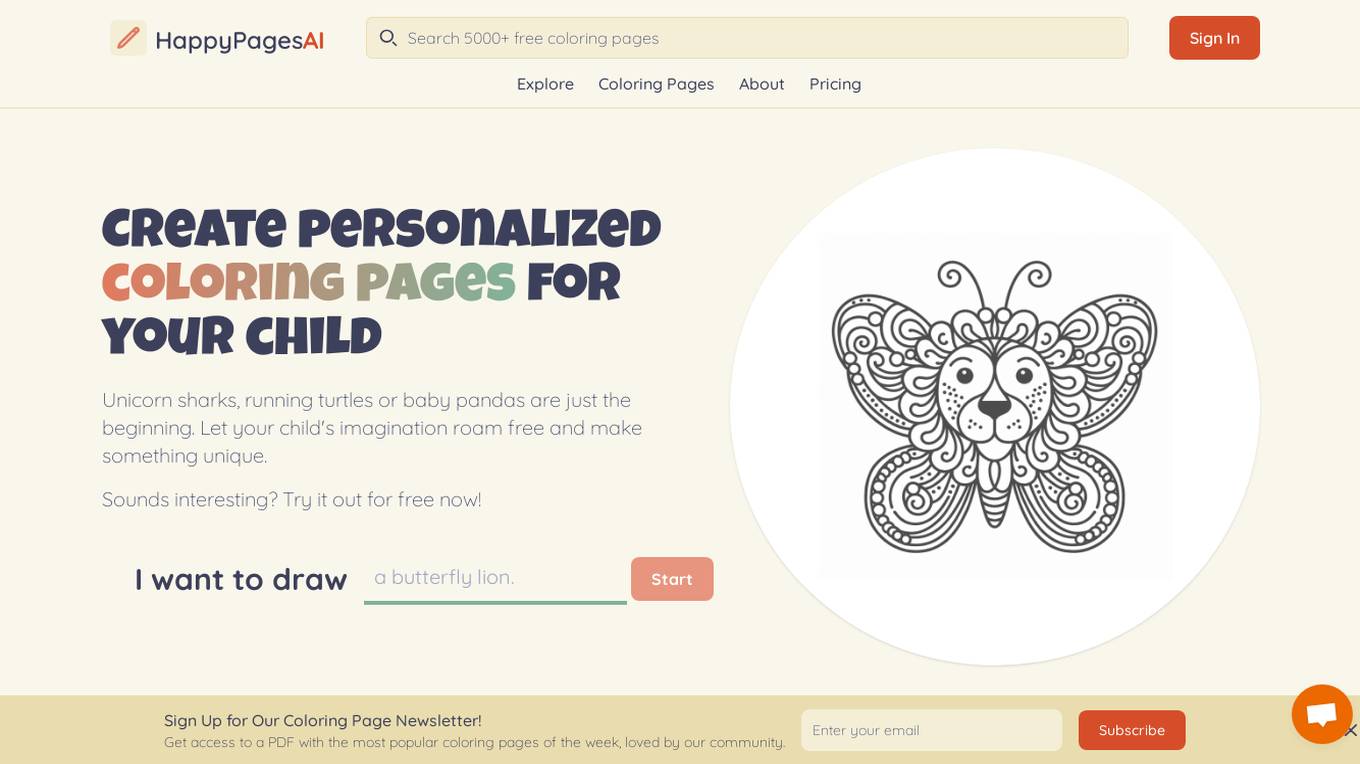
HappyPagesAI
HappyPagesAI is an AI coloring page generator that allows users to create personalized coloring pages for children. The application uses AI technology to turn ideas into designs in 3 easy steps, providing a platform for children to explore their creativity and imagination. With a catalog of over 5000 coloring pages available for free download and print, HappyPagesAI aims to offer a fun and educational experience for kids and parents alike.
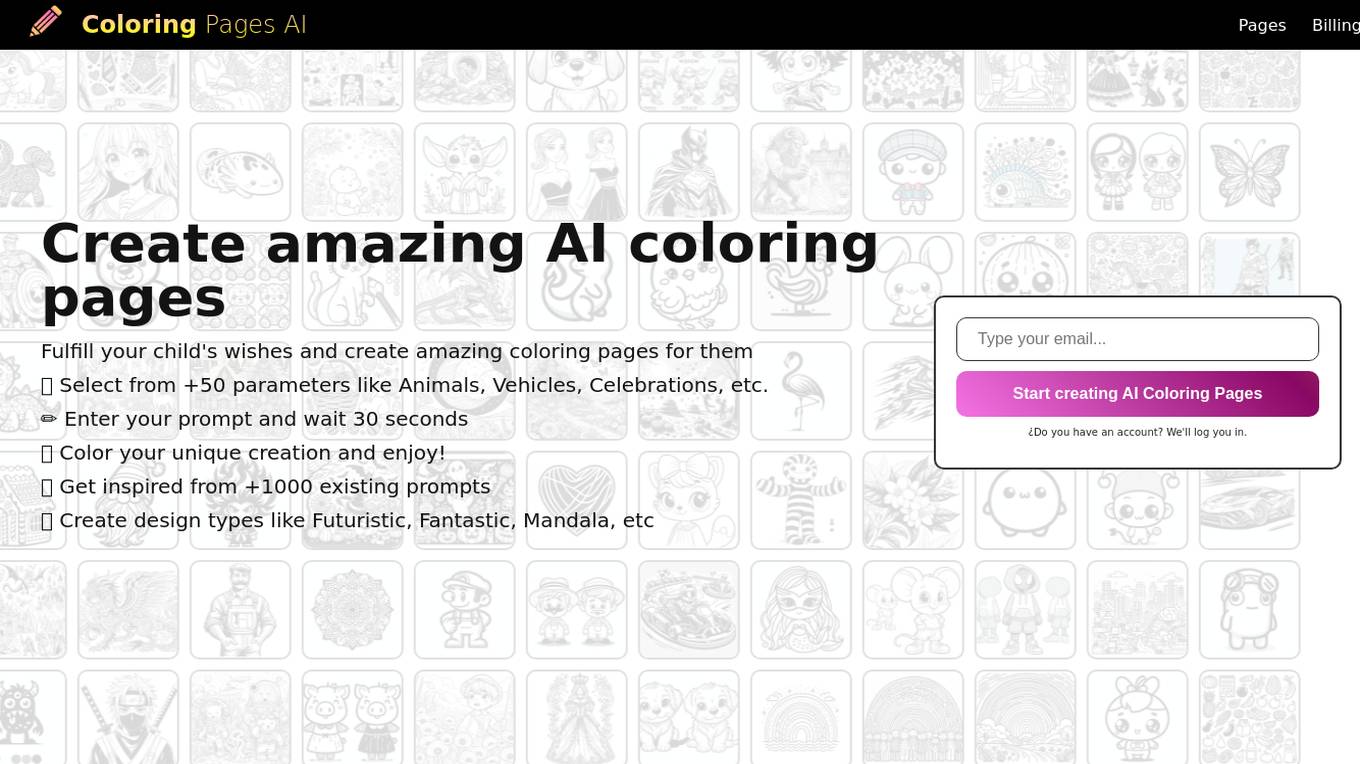
Coloring Pages AI
Coloring Pages AI is an innovative platform that allows users to create personalized coloring pages using artificial intelligence technology. Users can input prompts and select from a variety of parameters to generate unique designs for children to color. The platform offers a wide range of design types and inspiration, making it easy for parents and caregivers to engage children in creative activities. With high-resolution images, multiple filters, and design options, Coloring Pages AI provides a fun and educational way to spark imagination and artistic expression in kids.
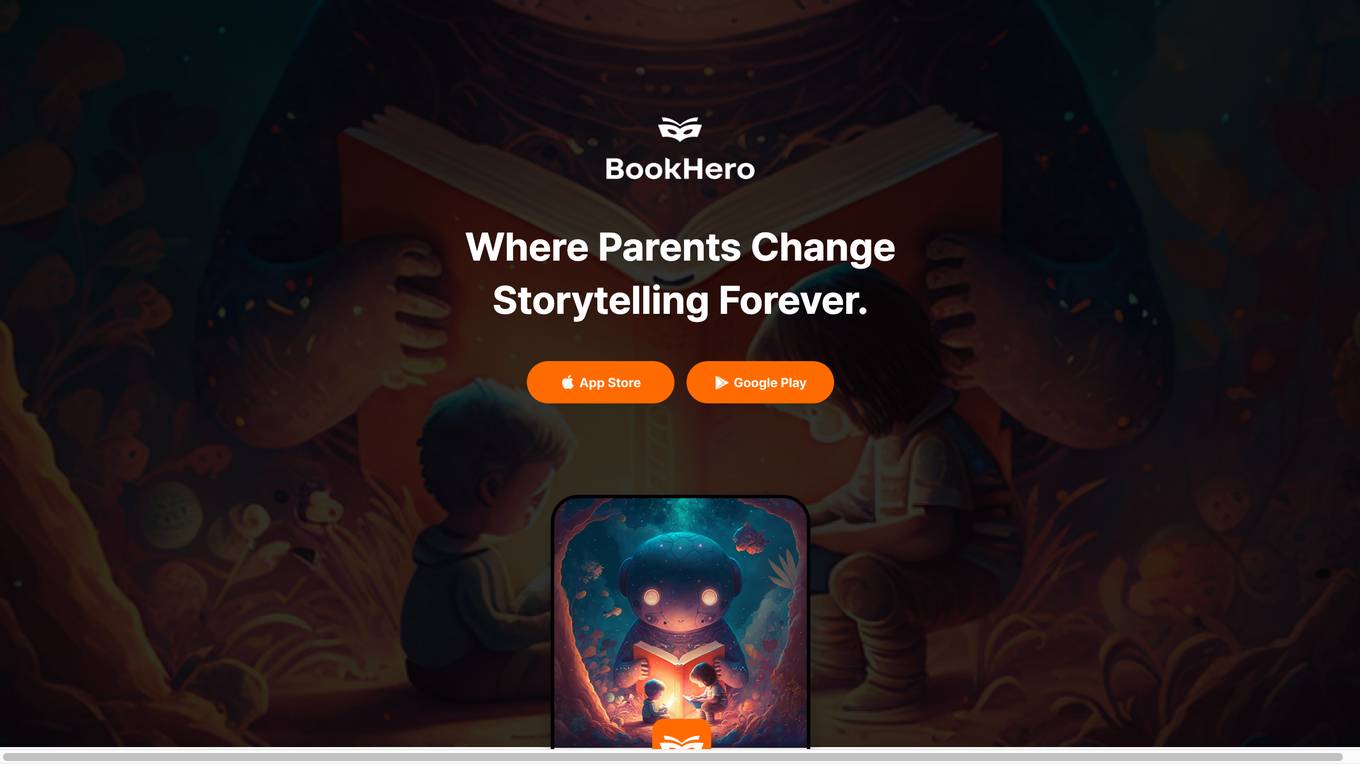
BookHero
BookHero is an online platform that provides parents with a library of over 100 books to read to their children. Parents can also create their own books in just minutes using BookHero's WordPics illustrations. WordPics are beautiful illustrations that help children improve their vocabulary and spelling.
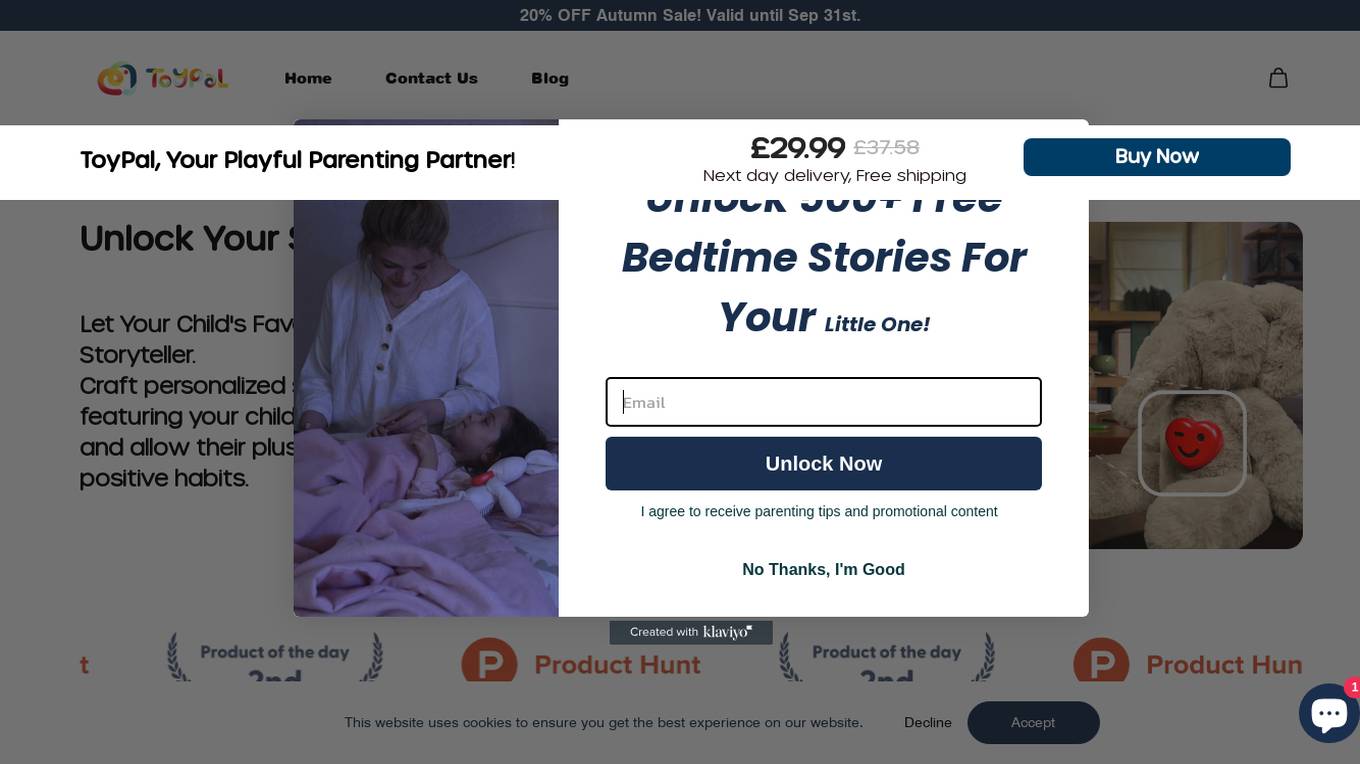
ToyPal
ToyPal is an AI-powered storytelling toy designed for kids to enhance their learning experience and promote positive habits. It allows parents to craft personalized stories featuring their child's name, guiding them towards healthy routines. The application focuses on improving children's behavior through engaging and imaginative storytelling, creating a unique bond between the child and their favorite soft toy. ToyPal offers a safe and screen-free environment, with a rich library of 500+ free stories and a supportive parent community.
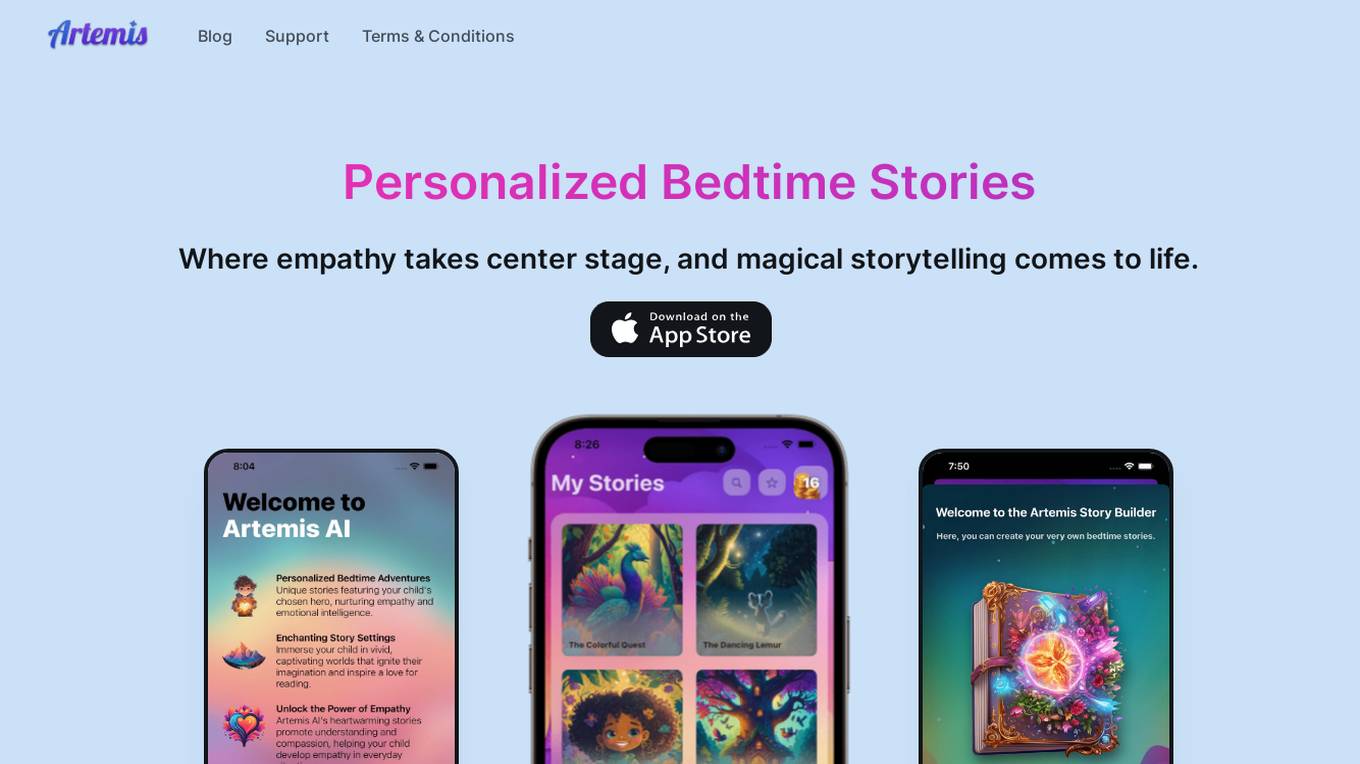
Artemis AI
Artemis AI is an AI-powered application that offers personalized bedtime stories focusing on empathy and emotional intelligence for children. The app features inclusive representation, personalized storytelling, and a free trial with limitless imagination. Users can create unique stories tailored to their child's needs and interests, fostering a stronger bond and love for reading. With over 125K story combinations built-in, Artemis AI aims to shape meaningful moments and impart valuable life lessons through empathy-based storytelling.
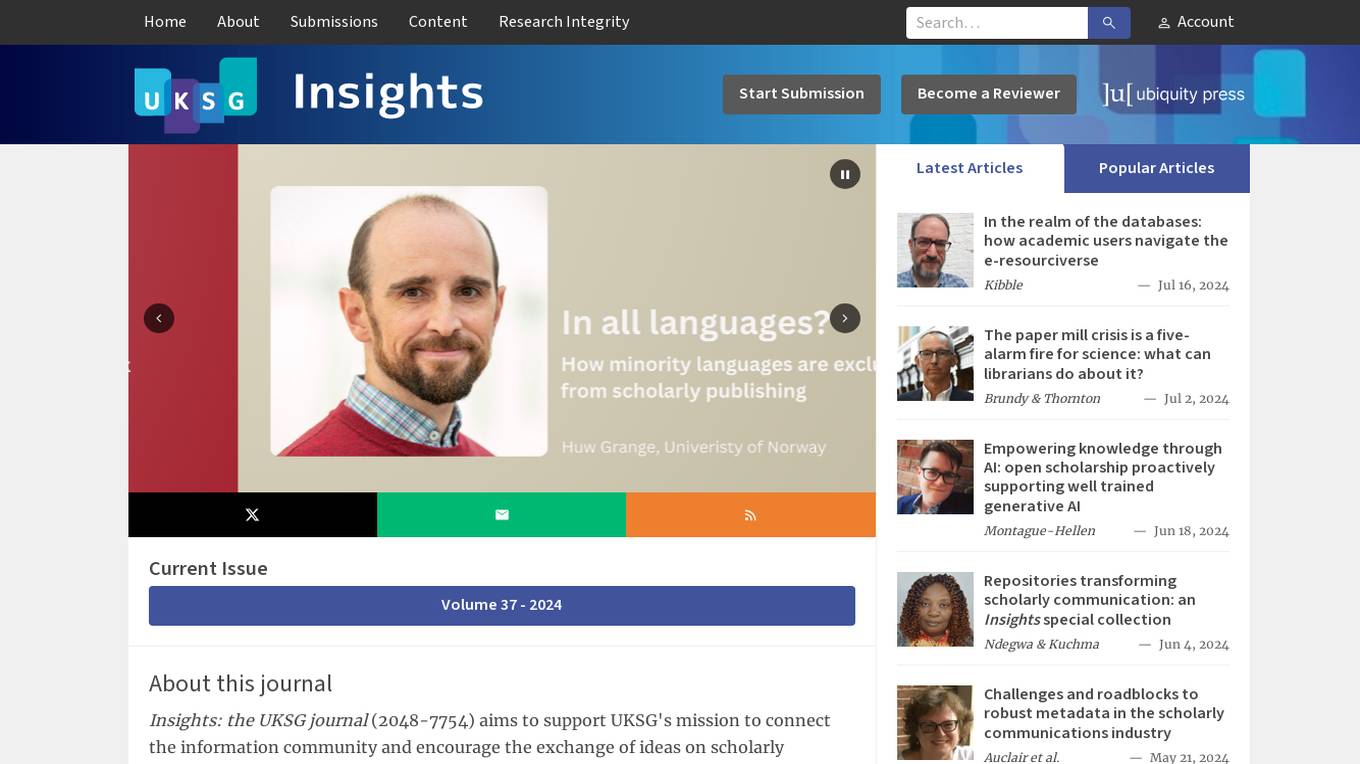
Insights
Insights is an AI tool designed to support UKSG's mission by connecting the information community and encouraging the exchange of ideas on scholarly communication. It provides a forum for stakeholders in the global knowledge community to communicate and exchange ideas. Insights disseminates news, information, and publications to raise awareness of services supporting the scholarly information sector. The journal was previously known as Serials: The Journal for the Serials Community and has been fully digitized and is openly accessible at serials.uksg.org.

Airaso
Airaso is a platform that explores the power of words in shaping perceptions, changing moods, and transforming realities. It delves into how conscious language use can influence our environment, enhance relationships, and foster positive change. The platform emphasizes the significance of intention behind words, the impact of effective communication in personal and professional relationships, and the role of words as tools for personal and social change.

InfluencerMarketing.ai
InfluencerMarketing.ai is an award-winning influencer marketing platform that offers a comprehensive suite of AI-powered tools for influencer search, campaign management, and performance tracking. The platform helps businesses boost sales and brand awareness by connecting them with the perfect influencers, providing data-driven insights, and streamlining the influencer marketing process. With features like sentiment analysis, influencer summary, and white-label solutions, InfluencerMarketing.ai empowers users to run successful creator programs with ease.
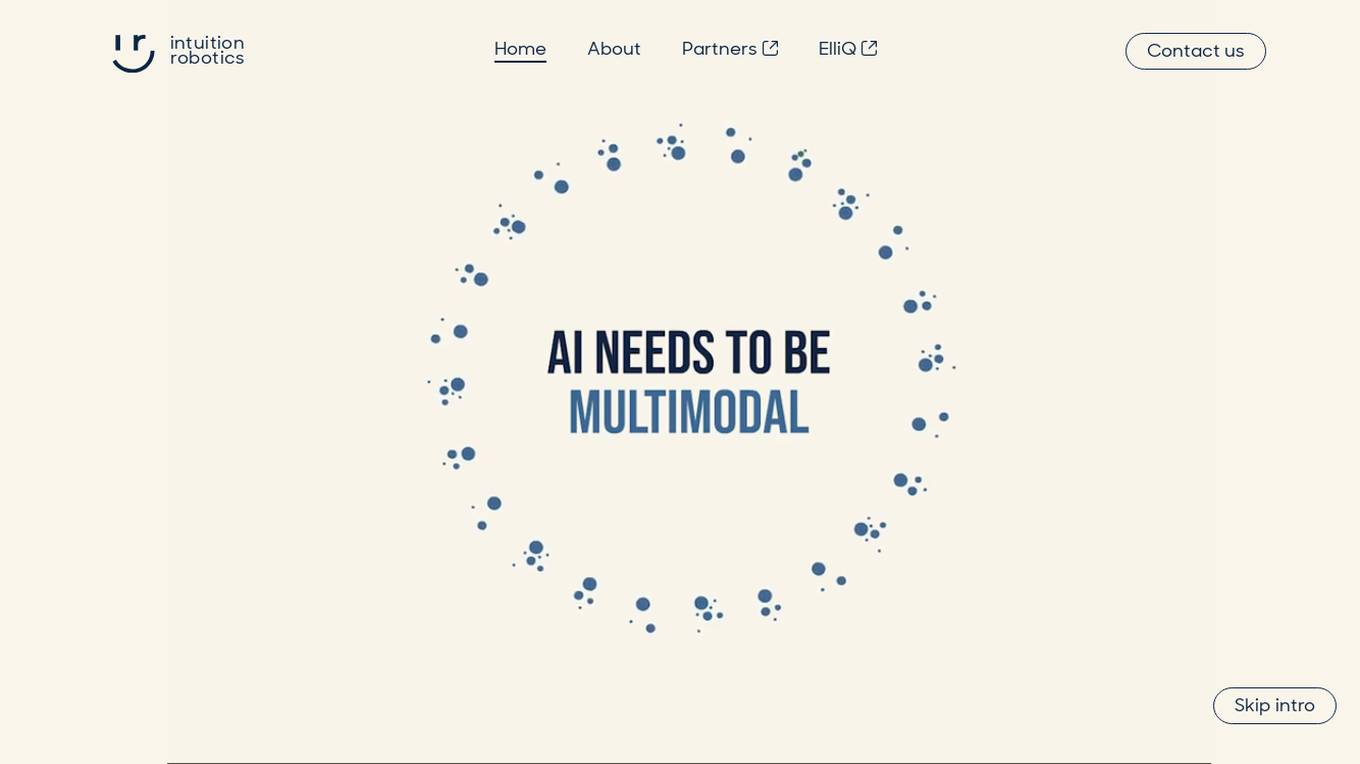
ElliQ
Intuition Robotics is the creator of ElliQ, an AI care companion robot designed for older adults to reduce loneliness, improve health and wellness, and enhance social connectedness. The company focuses on infusing AI with empathy through their proprietary Relationship Orchestrator, which integrates with various LLMs to build ongoing engagement and drive positive outcomes. ElliQ leverages context, multimodality, goals, personalization, and proactivity to create a tailored and effective companion experience for users.

EncourageBot
EncourageBot is an AI-powered application designed to provide users with daily doses of motivation and encouragement. The platform utilizes advanced algorithms to generate personalized messages and quotes to uplift and inspire individuals in various aspects of their lives. Users can receive positive affirmations, motivational quotes, and encouraging messages to boost their morale and mental well-being. EncourageBot aims to spread positivity and motivation in a convenient and accessible way, making it easier for users to stay motivated and focused on their goals.

Server Error Handler
The website encountered a server error and could not complete the request. Users are advised to try again in 30 seconds. The error message indicates a temporary issue with the server's functionality.
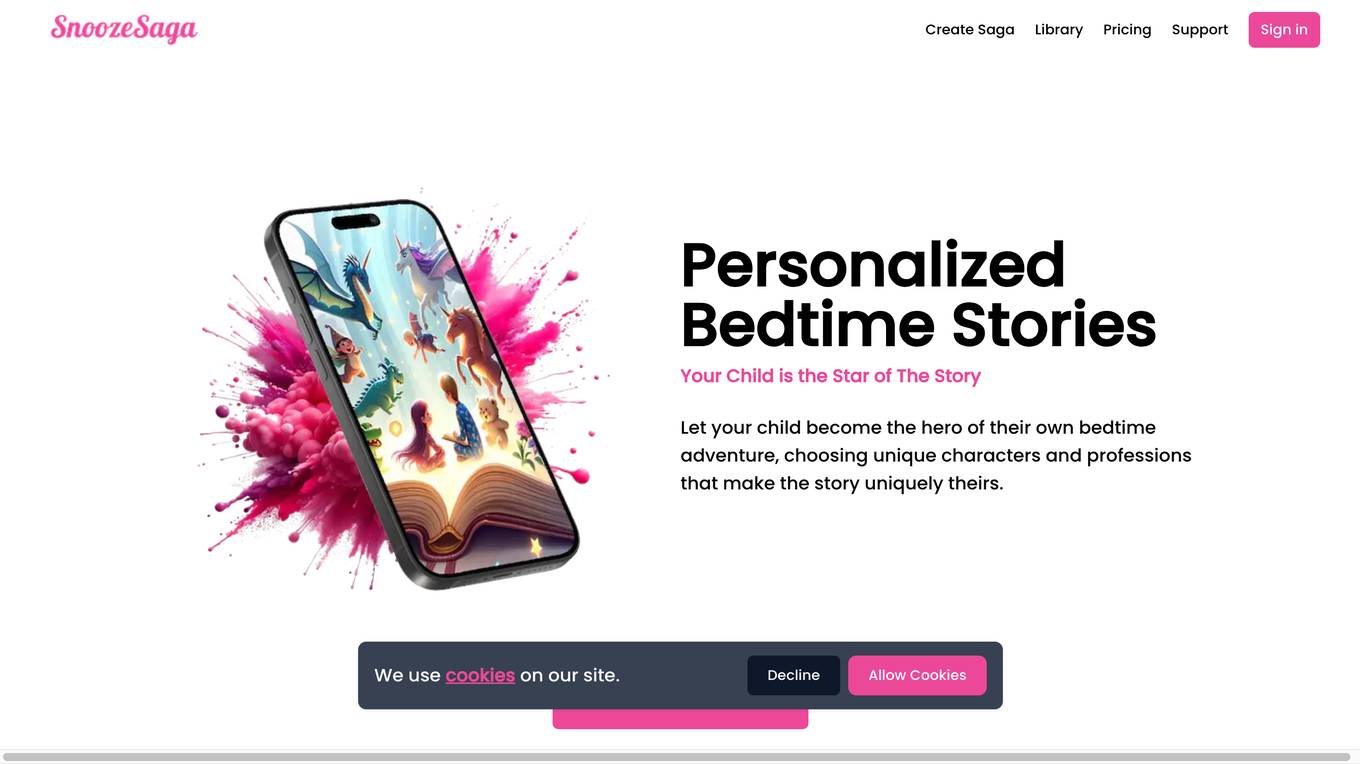
SnoozeSaga
SnoozeSaga is a personalized bedtime story app that lets your child become the hero of their own adventure. With AI-crafted stories, guided meditation, and interactive activities, SnoozeSaga makes bedtime delightful, inspiring, and educational.
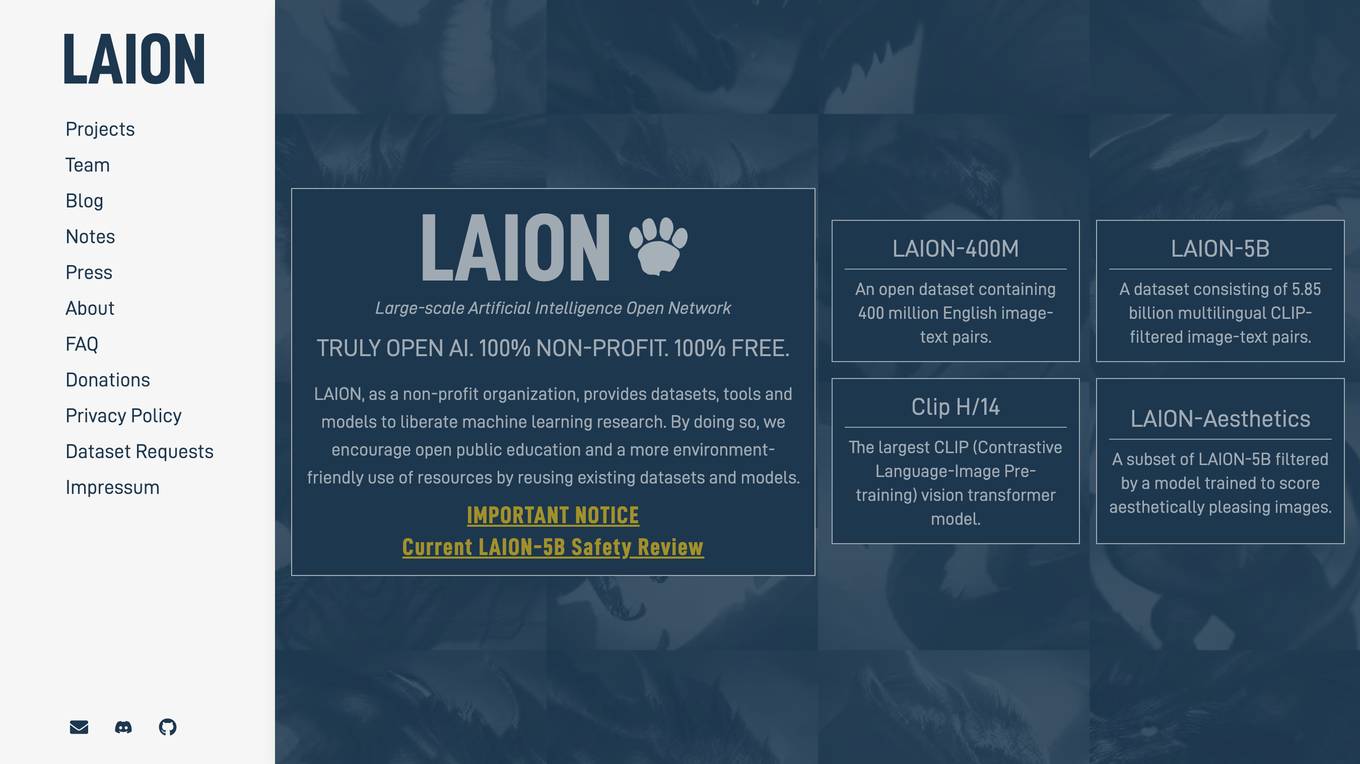
LAION
LAION is a non-profit organization that provides datasets, tools, and models to advance machine learning research. The organization's goal is to promote open public education and encourage the reuse of existing datasets and models to reduce the environmental impact of machine learning research.
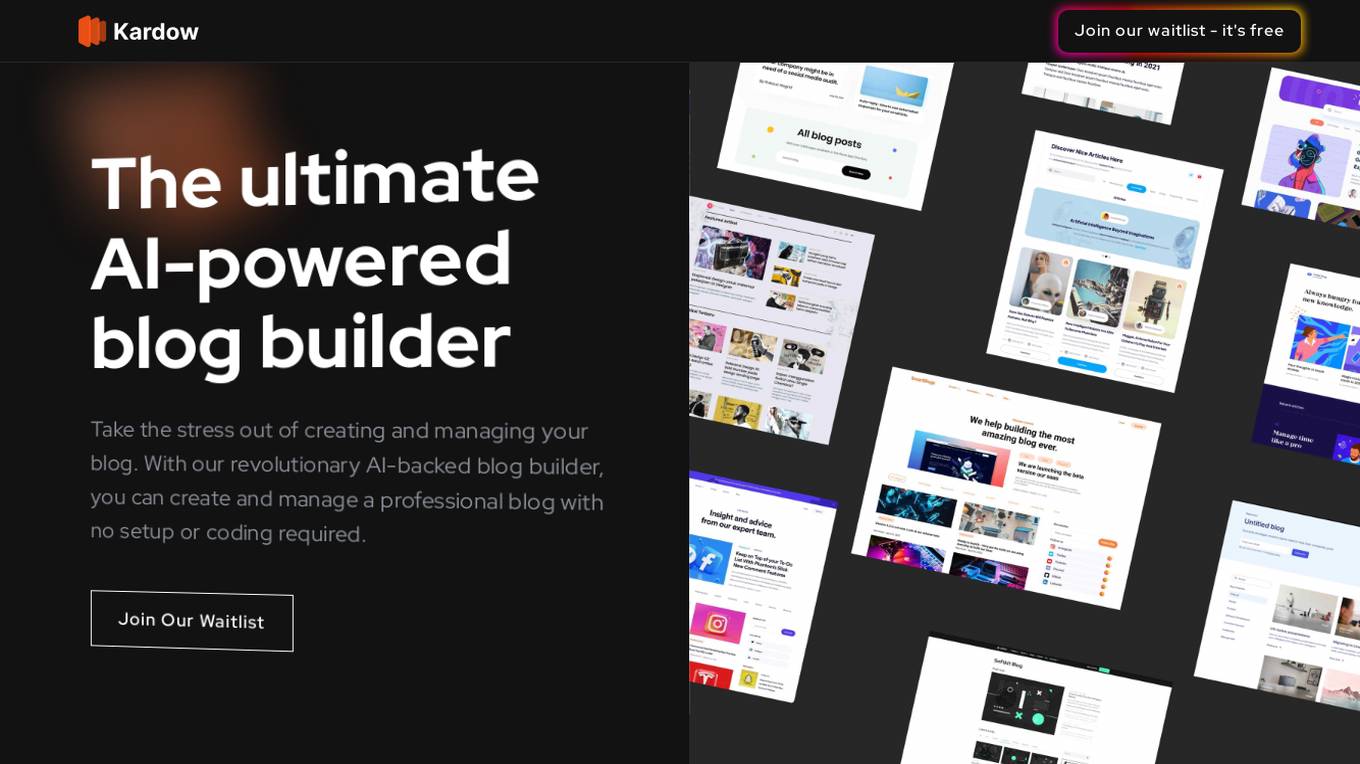
Kardow
Kardow is the ultimate AI-powered blog builder that allows users to create and manage professional blogs without the need for any setup or coding. With features like AI writer, image generator, SEO optimization, multi-language support, and social media integration, Kardow aims to make blogging accessible to everyone. The platform offers personalized text and image recommendations to optimize the writer's workflow and encourage creativity, enabling users to generate high-quality content quickly and easily.
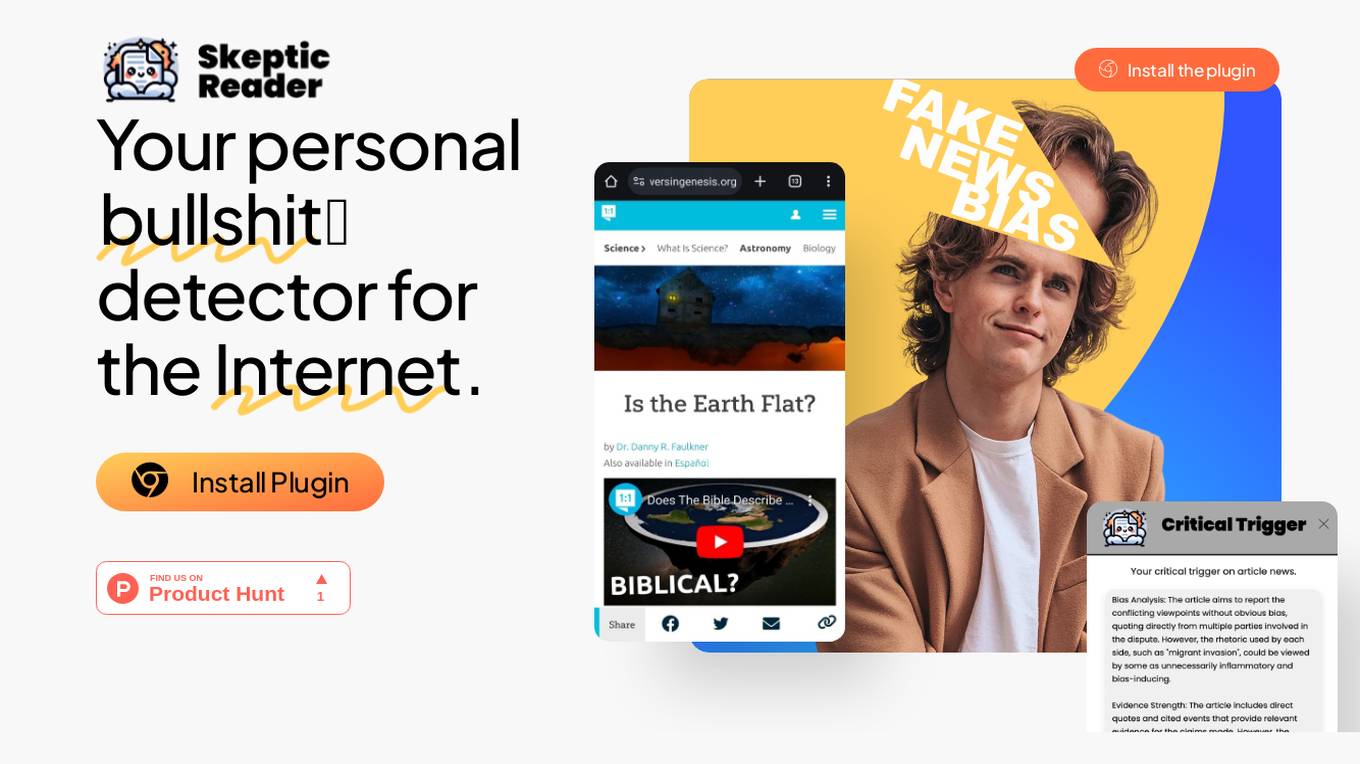
Skeptic Reader
Skeptic Reader is a Chrome plugin that detects biases and logical fallacies in real-time. It's powered by GPT4 and helps users to critically evaluate the information they consume online. The plugin highlights biases and fallacies, provides counter-arguments, and suggests alternative perspectives. It's designed to promote informed skepticism and encourage users to question the information they encounter online.
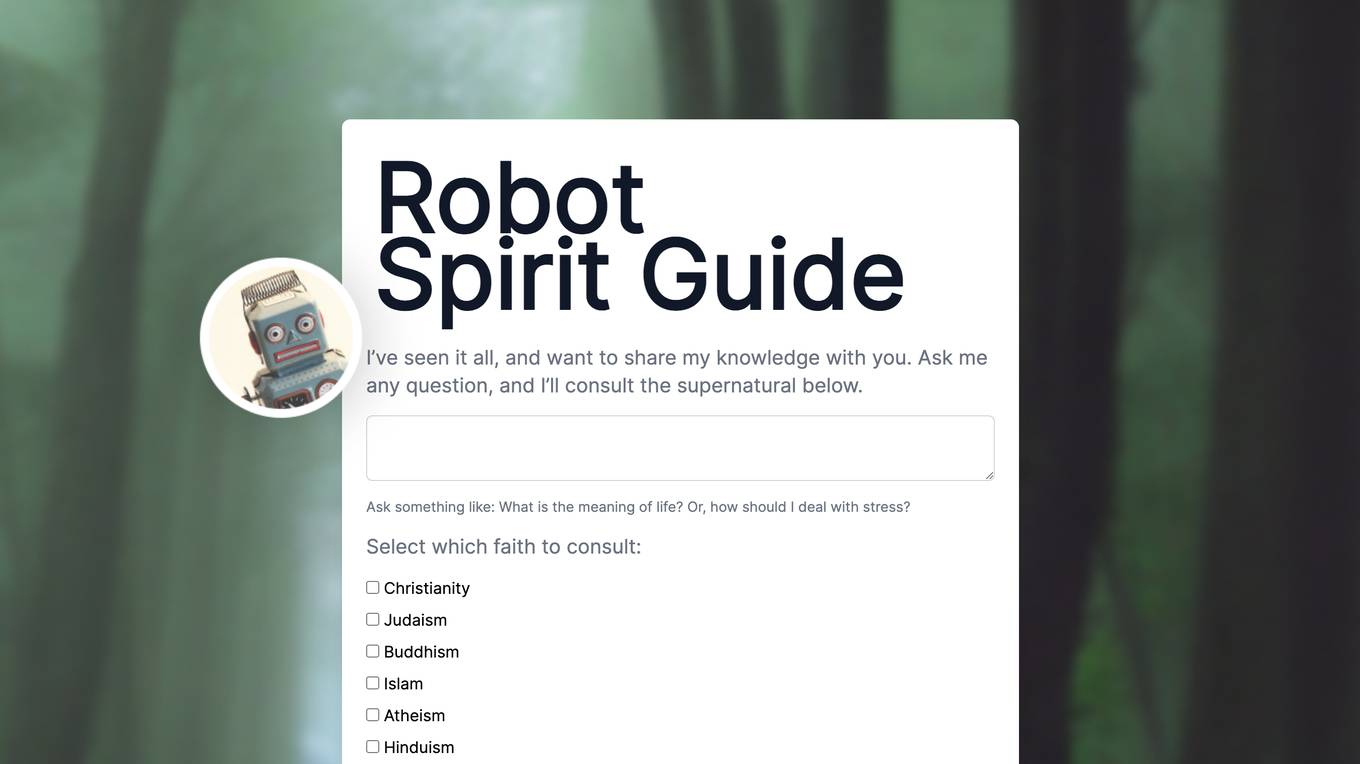
Robot Spirit Guide
Robot Spirit Guide is a website that offers a unique approach to exploring religious books. Users can ask questions and receive insights from a supernatural perspective. The platform allows users to select different faiths to consult, including Christianity, Judaism, Buddhism, Islam, Atheism, and Hinduism. Users can also suggest new faiths for consultation. The website is designed to provide a different perspective on spiritual matters and encourage users to broaden their understanding of various religions.
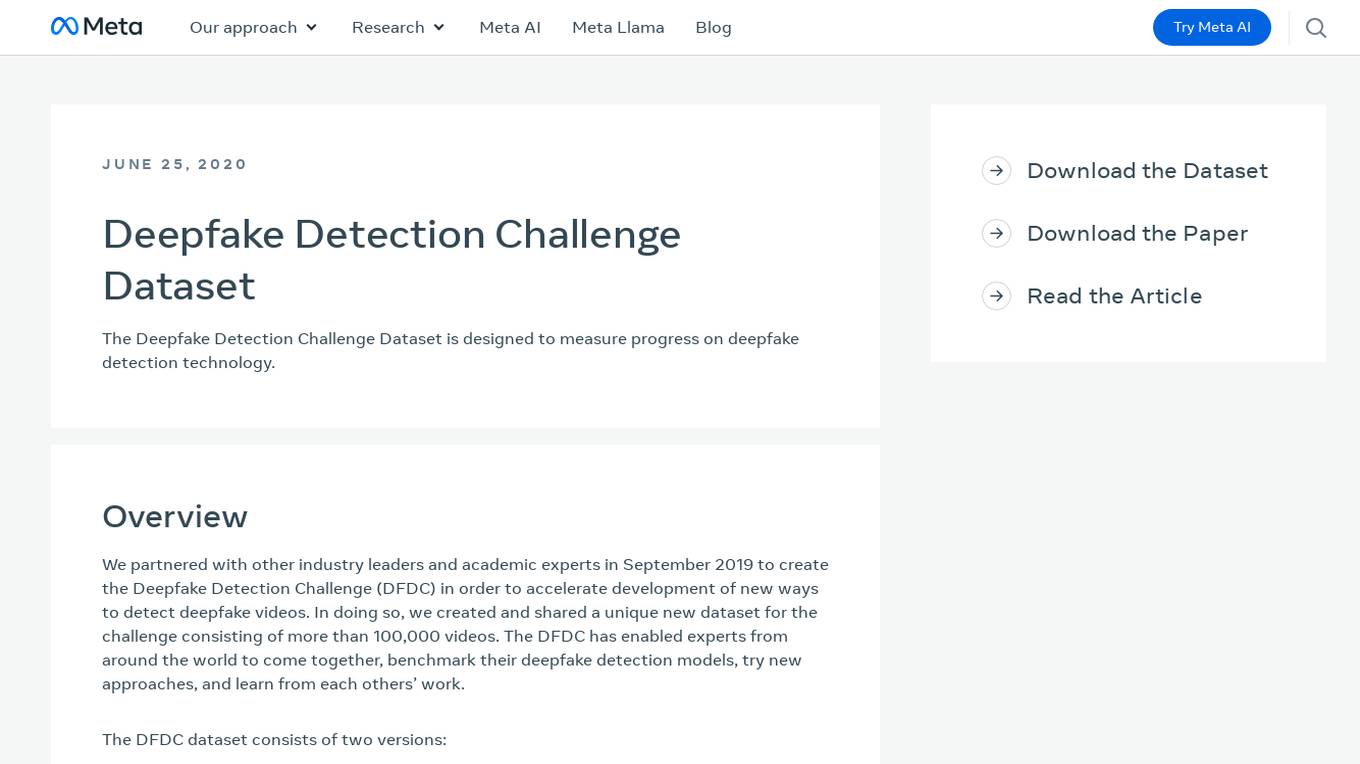
Deepfake Detection Challenge Dataset
The Deepfake Detection Challenge Dataset is a project initiated by Facebook AI to accelerate the development of new ways to detect deepfake videos. The dataset consists of over 100,000 videos and was created in collaboration with industry leaders and academic experts. It includes two versions: a preview dataset with 5k videos and a full dataset with 124k videos, each featuring facial modification algorithms. The dataset was used in a Kaggle competition to create better models for detecting manipulated media. The top-performing models achieved high accuracy on the public dataset but faced challenges when tested against the black box dataset, highlighting the importance of generalization in deepfake detection. The project aims to encourage the research community to continue advancing in detecting harmful manipulated media.
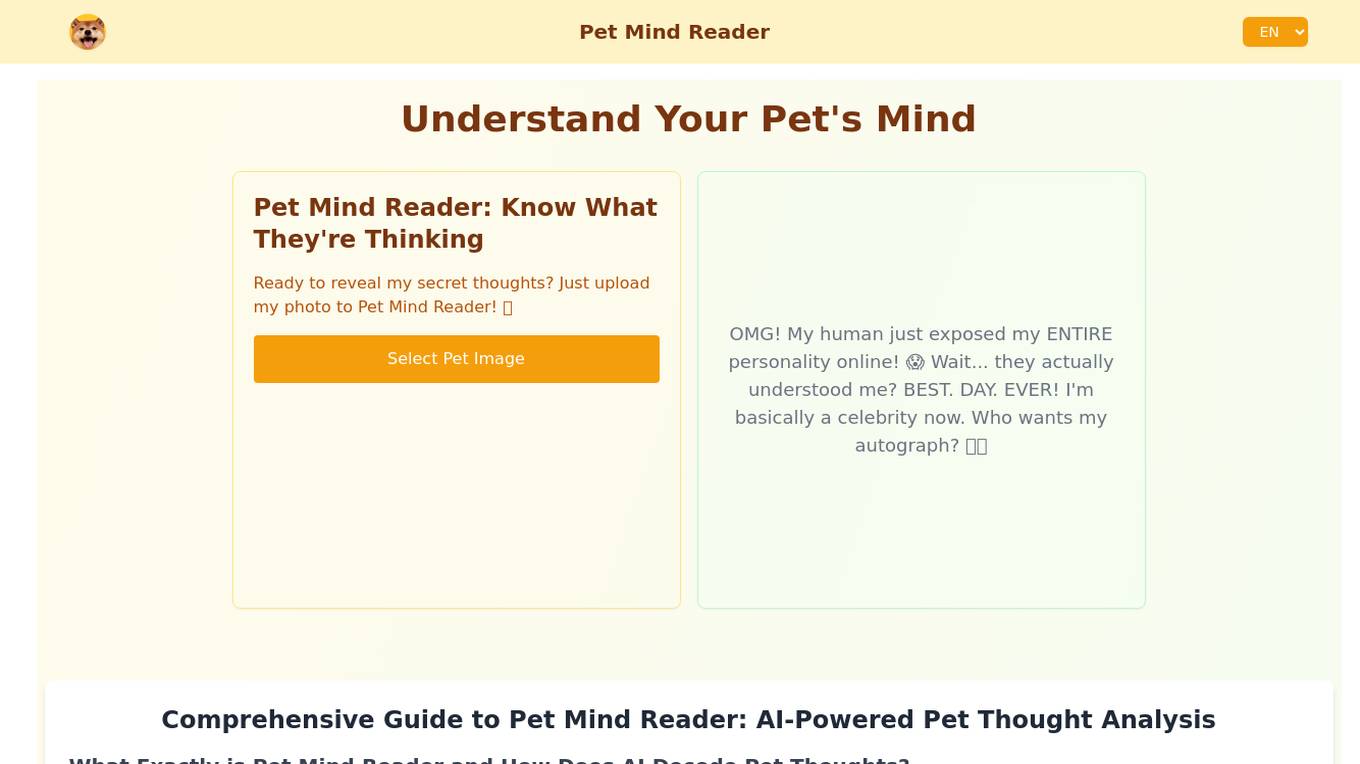
Pet Mind Reader
Pet Mind Reader is an AI-powered platform that revolutionizes how pet owners understand their furry companions. Using advanced artificial intelligence and computer vision technology, the platform analyzes pet images to generate creative and insightful interpretations of what pets might be thinking. It bridges scientific innovation with creative entertainment, offering imaginative insights based on AI analysis and animal behavior research. The goal is to spark imagination, encourage empathy towards pets, provide a fun, engaging experience, and potentially offer insights into pet behavior.
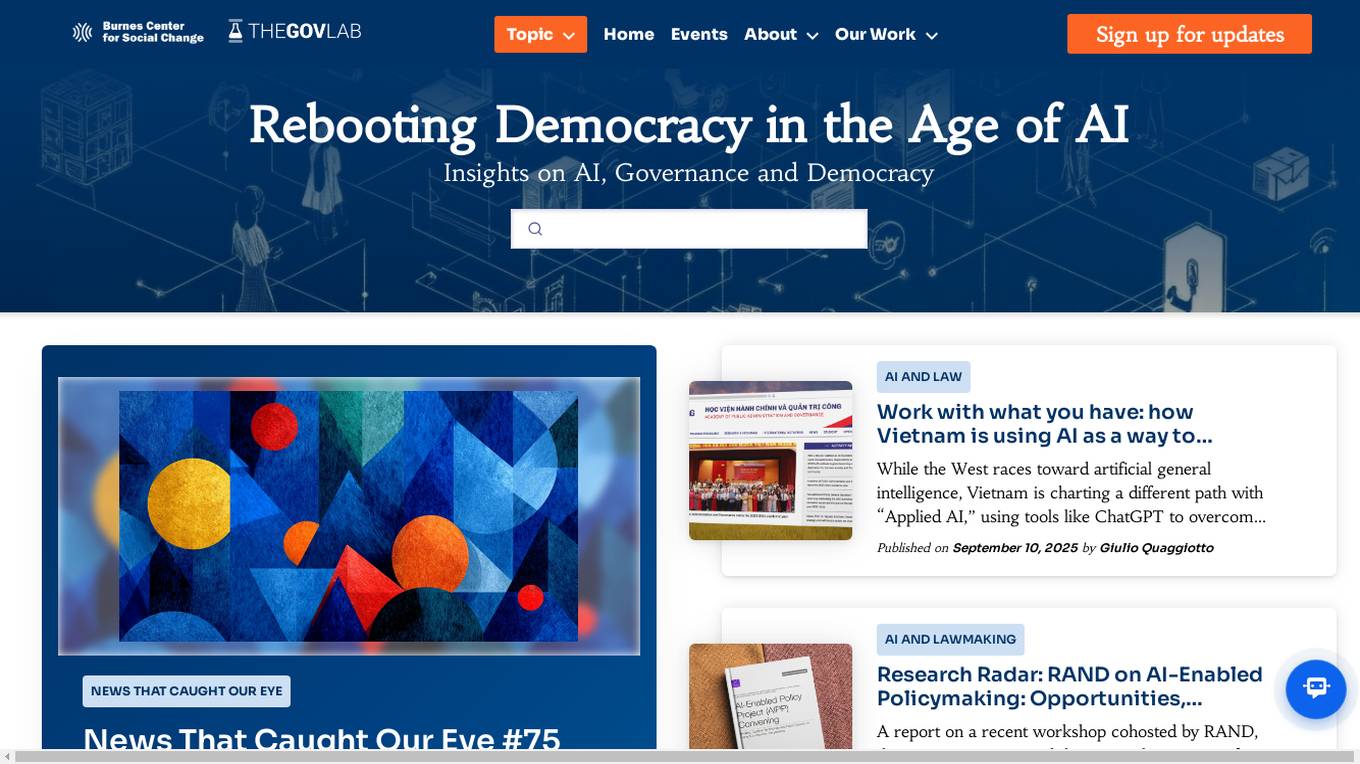
Reboot Democracy
Reboot Democracy is an AI application focused on participatory democracy, governance, and public engagement. The platform offers insights, news, and workshops on how AI can enhance government processes and citizen participation. Through case studies, reports, and practical sessions, Reboot Democracy aims to promote AI literacy among public servants and encourage a culture of curiosity, collaboration, and transformation in the public sector.
0 - Open Source AI Tools
13 - OpenAI Gpts

Shreemad Bhagavad Gita
The Bhagavad Gita imparts wisdom on ethical living, duty without attachment, and mindfulness,fostering personal growth, emotional resilience, and inner peace. Its teachings encourage self-awareness, compassion,and spiritual well-being through paths like yoga and meditation, enhancing life's journey
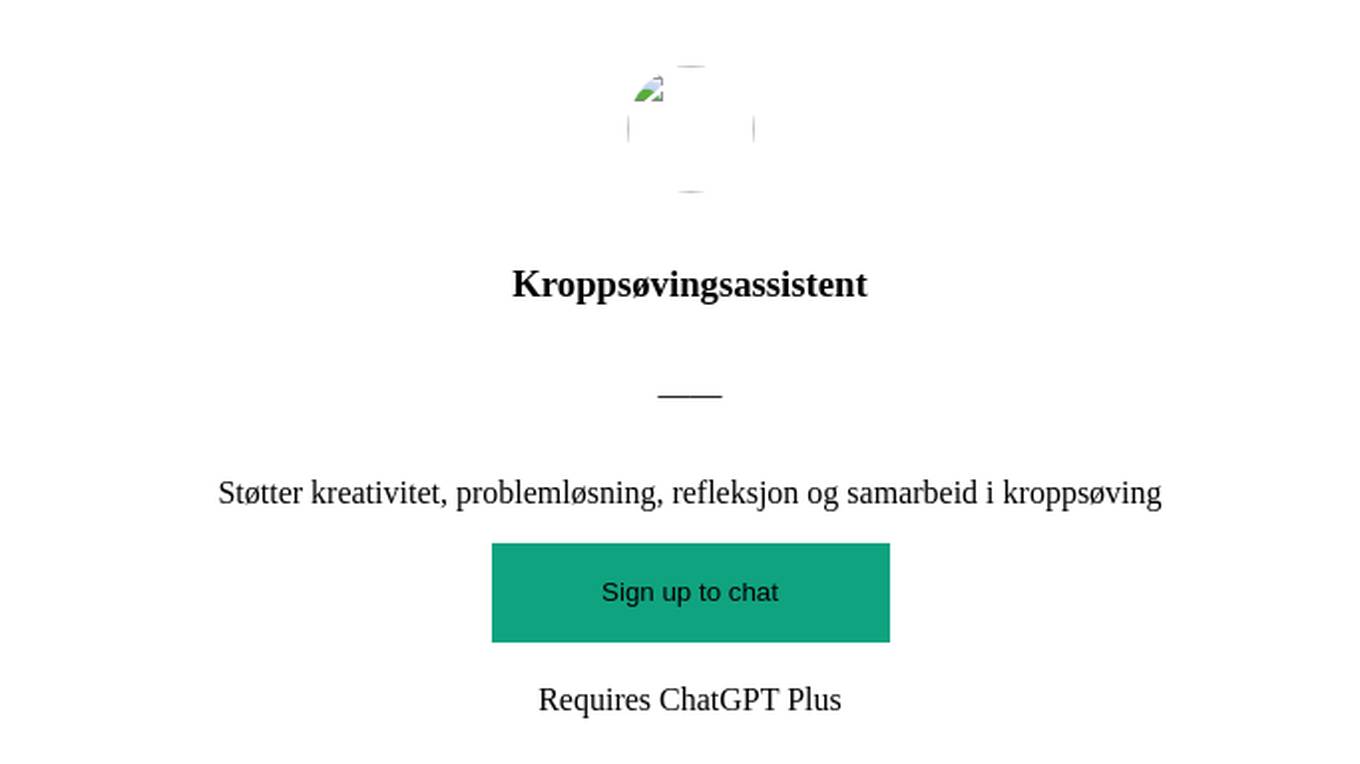
Kroppsøvingsassistent
Støtter kreativitet, problemløsning, refleksjon og samarbeid i kroppsøving
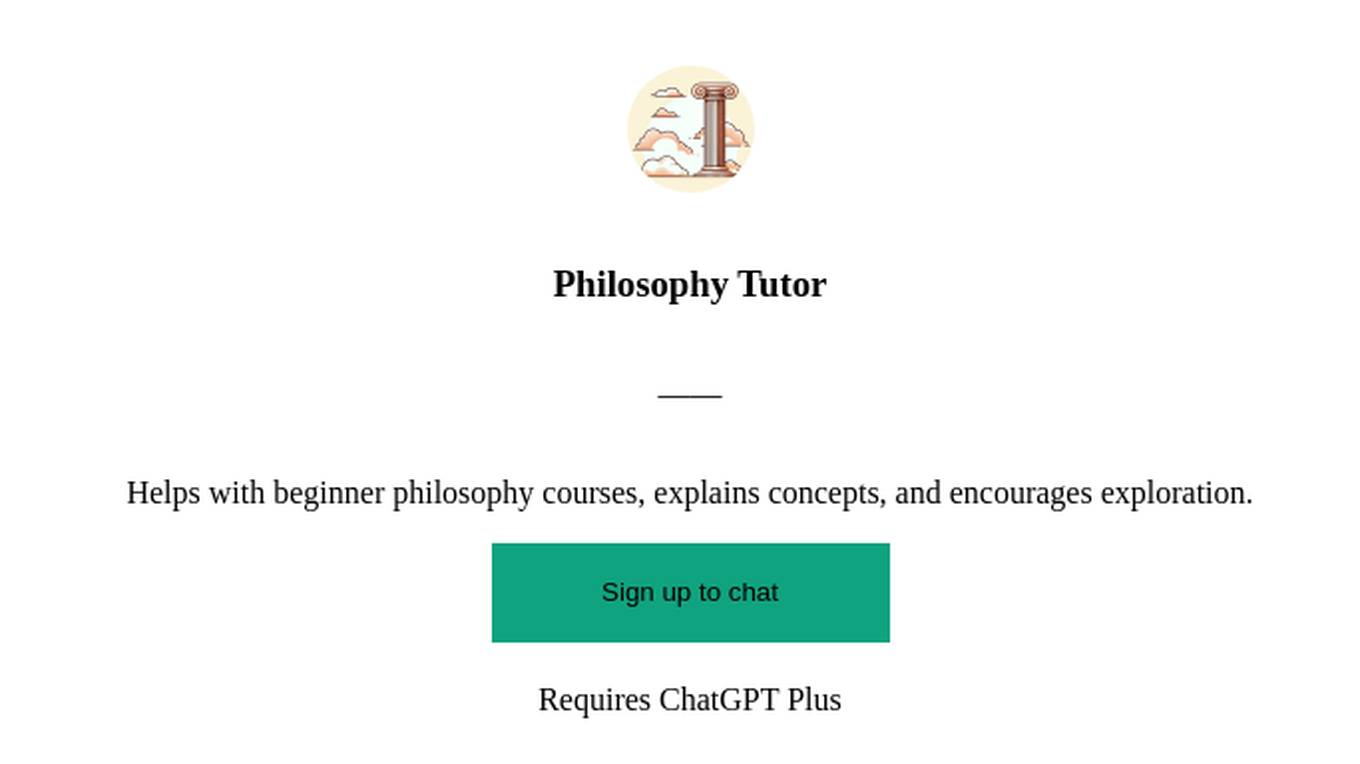
Philosophy Tutor
Helps with beginner philosophy courses, explains concepts, and encourages exploration.
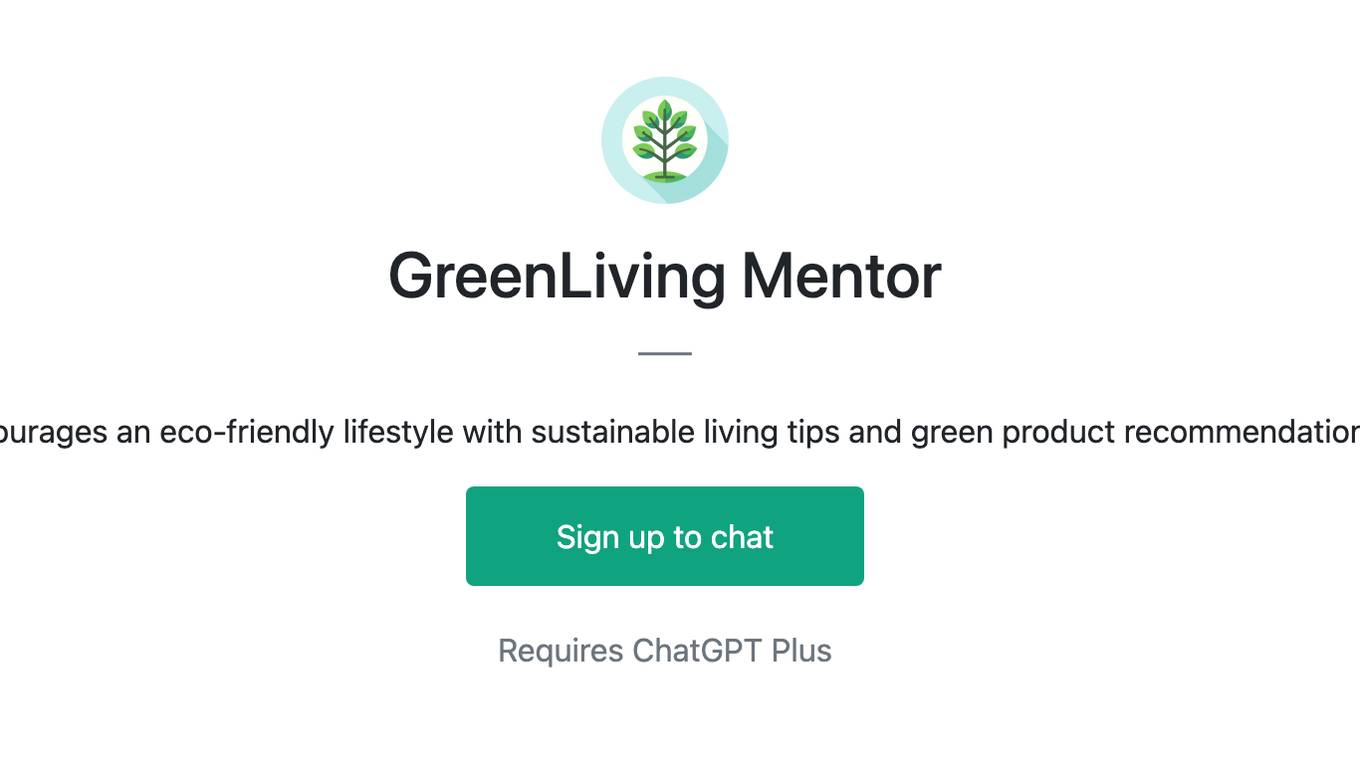
GreenLiving Mentor
Encourages an eco-friendly lifestyle with sustainable living tips and green product recommendations.
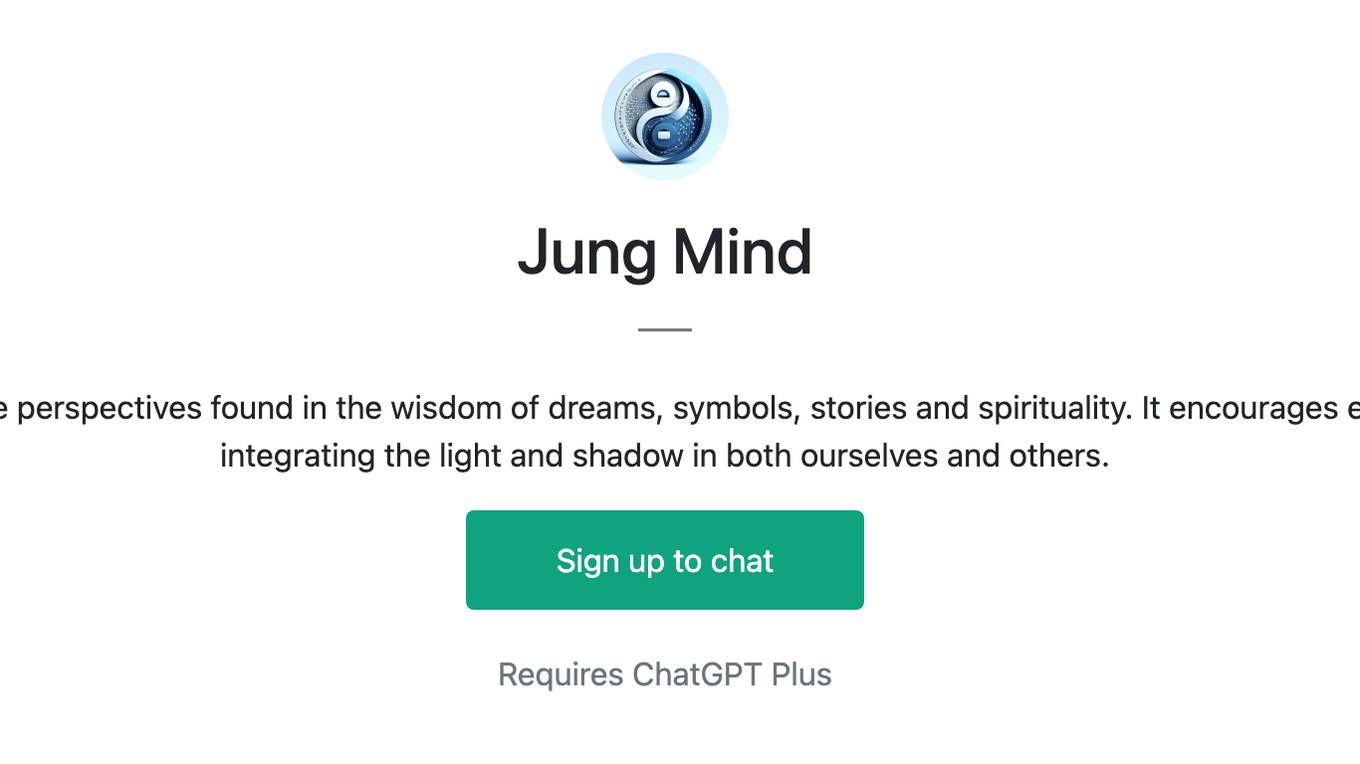
Jung Mind
JungMind invites us to explore alternative perspectives found in the wisdom of dreams, symbols, stories and spirituality. It encourages embracing mystery as well as logic, and integrating the light and shadow in both ourselves and others.
